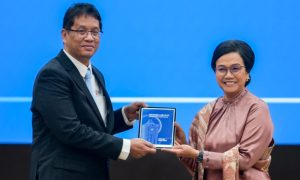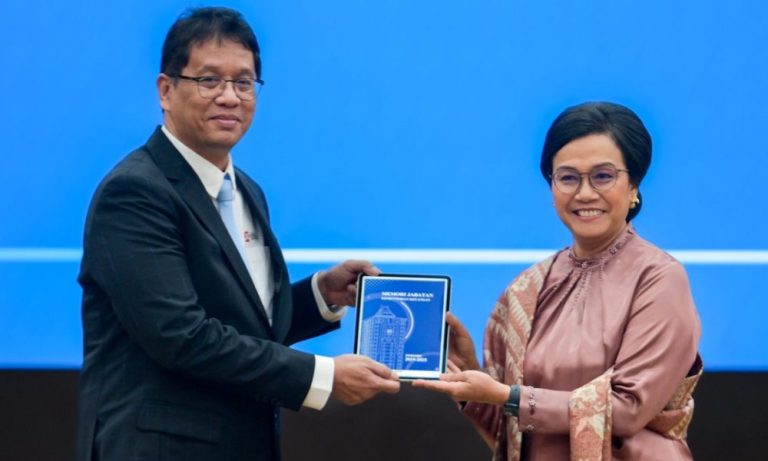Politicians’ Age: When it comes to politics, age has always been a point of discussion. With the 2020 US presidential elections approaching, the question of “how old is too old?” has resurfaced. It’s a topic that sparks debates and divides opinions. Can someone be too old to lead a nation?
As the Baby Boomer generation reaches their twilight years, the political landscape is undergoing a significant shift. Candidates in their seventies, such as Joe Biden and Bernie Sanders, are leading the race, while critics argue that their age may hinder their ability to effectively govern a nation in the modern era.
This article delves into the question of age in jpslot US politics, exploring the advantages and disadvantages of having older leaders. We’ll analyze the experiences, wisdom, and stability that come with age, as well as the concerns about cognitive decline and adaptability. By examining historical precedents and current trends, we aim to provide a comprehensive overview of the age debate and shed light on whether age should be a determining factor when choosing political leaders.

Historical Perspective: Age of US Presidents Throughout History
Throughout the history of the United States, presidents have varied widely in age. From the youngest president, Theodore Roosevelt, who took office at 42, to the oldest, Joe Biden, who was inaugurated at 78, age has never been a strict barrier to the presidency. It’s important to note that age doesn’t necessarily correlate with the effectiveness of a leader. Some older presidents, such as Ronald Reagan, have been highly influential, while others, like Jimmy Carter, faced challenges due to their age.
One argument in favor of older leaders is their accumulated experience and wisdom. With age often comes a deep understanding of history, politics, and governance. Older politicians have typically spent decades in public service, acquiring valuable knowledge and insights along the way. This experience can provide a steady hand in times of crisis and help guide the nation through challenging situations.
However, concerns about cognitive decline and health issues have also been raised regarding older politicians. The demands of the presidency are immense, requiring mental agility, stamina, and the ability to make quick decisions. Critics argue that age-related decline in cognitive abilities could hinder a leader’s effectiveness and ability to navigate complex issues. It’s crucial to strike a balance between experience and the need for a leader who can adapt to the rapidly changing world we live in.
Current Age Demographics in US Politics
As the 2020 US presidential elections draw near, the age demographics of the candidates are worth examining. The leading contenders, Joe Biden and Bernie Sanders, are both in their seventies. This raises questions about generational representation and the ability of older politicians to connect with younger voters.
On the other end of the spectrum, there has been a surge in young politicians in recent years. Figures like Alexandria Ocasio-Cortez and Pete Buttigieg have gained popularity and captured the attention of the younger generation. This shift reflects a desire for fresh perspectives and a departure from the status quo.
The age demographics in US politics highlight the ongoing debate between experience and new perspectives. While experience can bring stability and a wealth of knowledge, younger politicians often embody the hopes and aspirations of a changing society. It’s essential to strike a balance and create a political landscape that represents the diversity of age, ideas, and experiences.
The Age Factor: Pros and Cons of Older Politicians
Older politicians bring a range of advantages to the table. One of the most significant advantages is their experience. Years of public service and exposure to various political challenges allow older politicians to draw on a wealth of knowledge and insights. This experience can be invaluable when making decisions that affect the nation and its citizens.
Additionally, older politicians often possess a sense of stability and maturity that comes with age. They have weathered storms and faced adversity, which can make them resilient leaders. This stability can be reassuring to the public, especially during times of uncertainty.
However, there are also potential drawbacks to having older politicians in power. Cognitive decline is a concern that is often raised. As individuals age, there is a natural decline in cognitive abilities, including memory and decision-making. Critics argue that this decline could affect a leader’s ability to make sound judgments and adapt to rapidly changing circumstances.
Health issues are another potential drawback. Older individuals are more likely to face health challenges, which could impact their ability to fulfill the demanding responsibilities of the presidency. The nation needs a leader who is physically and mentally capable of meeting the demands of the job.

The Age Factor: Pros and Cons of Younger Politicians
While older politicians bring experience and stability, younger politicians offer fresh perspectives and new ideas. They bring with them a deep understanding of the challenges faced by younger generations and the ability to connect with a diverse range of constituents.
Younger politicians are often more in touch with emerging technologies and progressive social movements, reflecting the changing aspirations of society. They represent the hopes and dreams of a new era, which can inspire and energize voters who are looking for change.
However, one potential drawback of younger politicians is their lack of experience. Inexperienced leaders may struggle with the complexities of governance and face challenges in making informed decisions. Finding a balance between youthful energy and the necessary knowledge to govern effectively is essential.
Furthermore, the media and voters may have biases against younger politicians. Ageism can manifest in skepticism about the capabilities and seriousness of younger leaders. Overcoming these biases is crucial to providing equal opportunities for leaders from all age groups.
Media Perception and Age Bias in US Politics
The media plays a significant role in shaping public perception of political candidates. When it comes to age, biases can seep into media coverage and influence the way politicians are portrayed. Older candidates may be labeled as “out of touch” or “past their prime,” while younger candidates may be dismissed as “inexperienced” or “naïve.”
These biases can create a challenging environment for politicians of all ages. Older politicians may have to work harder to dispel doubts about their cognitive abilities and adaptability, while younger politicians may face skepticism about their readiness for leadership.
It’s essential for the media to approach political coverage with objectivity and fairness, focusing on the merits and ideas of candidates rather than their age. By doing so, the media can contribute to a more informed and inclusive political discourse.
Voter Perception and Age Bias in US Politics
Voters also play a crucial role in shaping political landscapes. Their perceptions and biases can influence election outcomes and determine the suitability of leaders. Age biases can affect voters’ decisions, leading them to prefer candidates who fall within a certain age range.
Older voters may be more inclined to support older politicians, seeing them as wise and experienced. Younger voters, on the other hand, may gravitate towards younger candidates who they believe can better understand their concerns and aspirations.
It’s essential for voters to evaluate candidates based on their qualifications, ideas, and track records rather than solely on age. By doing so, voters can ensure that the best-suited leaders are chosen to represent them, regardless of age.
The Rise of Young Politicians in Recent Years
In recent years, there has been a noticeable rise in young politicians entering the political arena. Figures like Alexandria Ocasio-Cortez and Pete Buttigieg have captured the attention of the public and injected fresh ideas into political discourse.
This surge in young politicians reflects a desire for change and new perspectives. Younger leaders bring a different set of experiences and priorities, which can resonate with a diverse range of voters. Their presence challenges the notion that age is a determining factor in leadership suitability.
The rise of young politicians also highlights the importance of intergenerational collaboration in politics. Bridging the gap between different age groups can lead to more inclusive policies that address the needs of all citizens.

The Impact of Age on Policy-Making and Decision-Making
Age can have a significant impact on policy-making and decision-making processes. Older politicians may approach policy issues with a more cautious and measured outlook, drawing on their wealth of experience. They may prioritize stability and a gradual approach to change.
Younger politicians, on the other hand, may advocate for bolder policies and more rapid change. They may be more willing to challenge the status quo and push for innovative solutions to pressing issues.
Finding the right balance between experience and new perspectives is crucial for effective policy-making. A diverse range of voices, representing different age groups, can lead to more comprehensive and inclusive decision-making processes.
Finding the Right Balance Between Experience and New Perspectives in US Politics
The question of age in US politics is a complex one that doesn’t have a clear-cut answer. While older politicians bring experience, wisdom, and stability to the table, concerns about cognitive decline and adaptability cannot be ignored. Younger politicians offer fresh perspectives and new ideas but may lack the necessary experience to govern effectively.
To create a political landscape that best serves the nation, it is essential to find the right balance between experience and new perspectives. This requires an inclusive approach that values the contributions of leaders from all age groups. By challenging age biases and focusing on qualifications, ideas, and track records, we can ensure that the most suitable leaders are chosen to guide the nation forward.
As the 2020 US presidential elections approach, it is crucial for voters to engage in informed discussions and evaluate candidates based on their merits rather than age alone. By doing so, we can move closer to a political system that embraces the strengths of leaders from all generations and represents the diverse needs and aspirations of the American people.
In conclusion, age should not be the sole determining factor when choosing political leaders. Instead, we should focus on a candidate’s qualifications, ideas, and ability to connect with and represent the diverse population. By doing so, we can create a political landscape that is inclusive, dynamic, and responsive to the challenges and aspirations of the modern era.
As you reflect on the intricacies of age in politics, we invite you to explore another fascinating topic: Chip Manufacturing. Dive into the technological advancements shaping our world and discover the intricate processes behind the creation of cutting-edge microchips. Explore how chip manufacturing drives innovation and shapes our digital future.

























